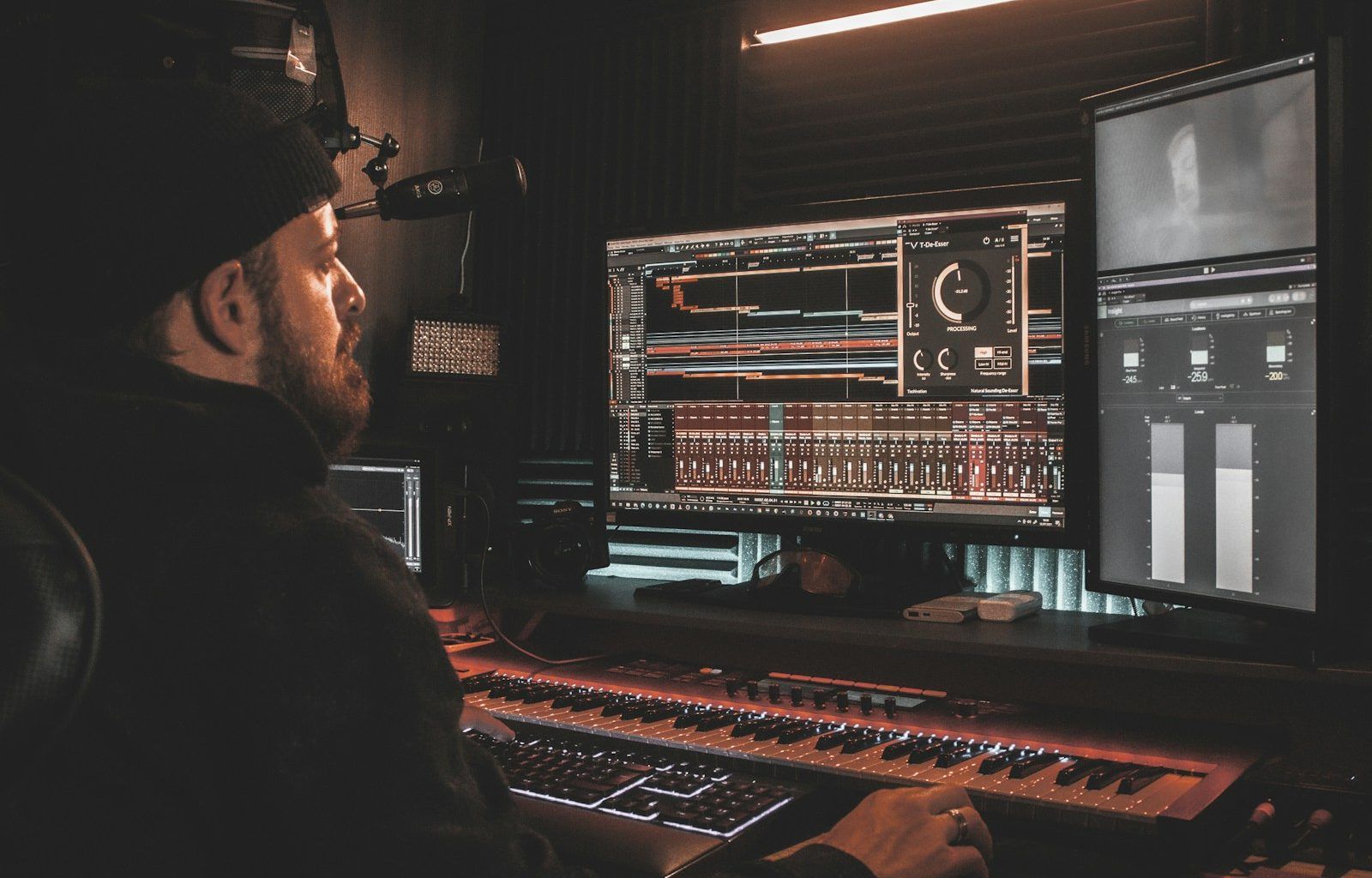Music mastering is a term that often gets tossed around in the music industry, but what does it really mean? Simply put, mastering is the final step in the music production process. It’s where all the pieces come together, and your song is polished to perfection, ready to be shared with the world. Think of it as the finishing touch on your musical masterpiece.
Why is Music Mastering Important?
Imagine you’ve spent hours, days, or even months recording and mixing your song. You’ve fine-tuned every instrument, adjusted the vocals, and made sure everything sounds just right. But when you play it on different devices, like your car speakers or headphones, it doesn’t quite sound the same. That’s where mastering comes in.
Mastering ensures that your music sounds consistent and professional across all playback systems. It balances the frequencies, adjusts the volume levels, and adds a final layer of polish. Without mastering, even the best mix can fall flat. This step makes sure your music competes with other professional tracks in terms of quality.
The Mastering Process Explained
You might be wondering what actually happens during music mastering. While it can be quite technical, here’s an easy breakdown:
- Equalization (EQ): The mastering engineer tweaks the frequencies to ensure no part of the sound spectrum is too overpowering or too weak. For example, they might enhance the bass or reduce harshness in the highs.
- Compression: This helps to even out the dynamics of the song, making the quieter parts more audible and the louder parts less overwhelming. It’s about creating balance and cohesion.
- Limiting: To ensure your song’s volume is competitive, limiting is used to maximize loudness without causing distortion.
- Stereo Enhancement: Mastering can widen the stereo field, making your track sound bigger and more immersive.
- Sequencing and Spacing: For albums or EPs, the mastering process also involves deciding the order of the tracks and ensuring smooth transitions between them.
- Final Format Preparation: The mastered track is exported in high-quality formats suitable for distribution, whether that’s streaming platforms, CDs, or vinyl.
Who Does the Mastering?
Mastering is typically handled by a specialized audio engineer. These professionals have trained ears and the right tools to bring out the best in your music. While many producers and artists attempt to master their tracks using software, a dedicated mastering engineer can offer expertise and an objective perspective.
Can You Master Music Yourself?
With the rise of affordable software and online tutorials, self-mastering has become more popular. Tools like iZotope Ozone or LANDR make it possible for anyone to try their hand at mastering. However, mastering requires more than just technical skills; it’s an art form. Professional mastering engineers have years of experience and access to high-end equipment, which often results in a superior sound.
If you’re on a tight budget, self-mastering can be a good starting point. Just remember, it’s a learning curve, and the results may not match those of a professional.
The Tools of the Trade
Mastering involves both hardware and software. Here are some common tools used in the process:
- Digital Audio Workstations (DAWs): These are software platforms like Pro Tools, Logic Pro, or Ableton Live, where the mastering takes place.
- Plug-ins: These include EQs, compressors, limiters, and other effects tailored for mastering.
- Analog Gear: Many mastering engineers swear by analog equipment for its warmth and character.
- Monitoring Systems: High-quality speakers and headphones are crucial for accurate sound reproduction.
How Long Does Mastering Take?
The time it takes to master a track can vary. For a single song, it might take a few hours. For an entire album, it could take days or even weeks. The complexity of the project and the specific requirements of the artist play a big role.
Common Misconceptions About Mastering
One of the biggest misconceptions is that mastering can fix a bad mix. While mastering can improve a track, it can’t work miracles. If the mix is unbalanced or muddy, those issues will carry over into the mastering stage. That’s why it’s essential to have a solid mix before sending your track off for mastering.
Another myth is that louder is always better. While loudness is important, especially for streaming platforms, over-compressing a track can strip it of its dynamics and emotion.
How Much Does Music Mastering Cost?
The cost of mastering varies widely. For a single track, you might pay anywhere from $50 to $200. For an album, the price can range from a few hundred to several thousand dollars. The cost often reflects the engineer’s experience and the quality of their equipment.
Online mastering services, like LANDR or CloudBounce, offer affordable options, but they lack the personal touch and expertise of a professional engineer.
What Should You Expect From a Mastered Track?
Once your track is mastered, it should sound clear, balanced, and professional. It should hold its own when played alongside other tracks on streaming platforms or radio. Most importantly, it should reflect your artistic vision.
Final Thoughts
Music mastering is an essential step in creating professional-quality music. While it may seem like a mysterious or overly technical process, its goal is simple: to make your music sound its absolute best. Whether you choose to hire a professional or take a DIY approach, mastering is worth the effort. It’s the bridge between a good track and a great one. So, next time you hear a polished, radio-ready song, you’ll know the magic behind it.
For further reading, explore these related articles:
- Old Songs Remix List: Rediscovering Timeless Classics with a Modern Twist
- Michael Jackson’s Top Songs of All Time: A Timeless Legacy in Music
For additional resources on music marketing and distribution, visit DMT Records Pvt. Ltd..






